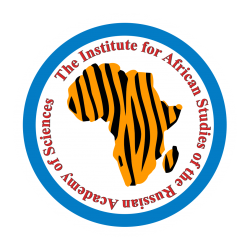Author:
Abstract:
The article analyzes the role of ideology in building a postcolonial order in the Arab world. Ideology traditionally plays a significant role in the formation of public policy, both foreign and domestic. The formation of the ideological system and its subsequent influence on political processes began after the collapse of the Ottoman Empire in the early 20th century. The intensified pan-Islamic and pan-Arab tendencies led to national liberation wars and the formation of sovereign states. However, the actual colonial dependence of the countries of the Arab world on the West persisted, which reflected the impossibility of the development and implementation of pan-Arab ideas. In general, pan–Islamic and pan-Arab ideas did not help to get rid of colonial dependence, but became an important basis for the formation of post-colonial ideologies – Arab nationalism and Islamism.
The process of decolonization entered an active phase only after the Second World War. The post-war movement of Arab nationalism partially contributed to the formation of a post-colonial order in the Arab world. The subsequent ideological system in the form of Islamism did not get rid of the colonial legacy, however, laid the foundation for post-Islamism, which demonstrated its potential after the Arab Spring.
Keywords:
ideology, Arab world, Islamism, Arab nationalism, post-Islamism, Arab spring
DOI:
10.31132/2412-5717-2022-59-2-49-56
References:
1. Dabashi H. The Arab Spring: the end of postcolonialism. London, Bloomsbury Publishing, 2012. 296 p.
2. Dolgov B.V. Islamistskij vyzov i alzhirskoe obshhestvo (1970–2004 gg.). (The Islamist Challenge and Algerian Society (1970- 2004)). Moscow. In-t izuchenija Izrailja i Blizh. Vostoka. 2004. 273 p.
3. Fituni L.L., Abramova I.O. Non-State and Quasi-State Actors in the Greater Middle East and the Problem of “Eurojihadism” The European Face of the Extremist Threat. Asia and Africa today. 2015, № 11 (700), pp. 2‒11.
4. Hajrullin T.R. Nacionalisticheskie proekty v Arabskom mire vo vtoroj polovine XX veka (Nationalist projects in the Arab world in the second half of the 20th century). Vestnik Marijskogo gosudarstvennogo universiteta. Serija: Istoricheskie nauki. Juridicheskie nauki (Bulletin of the Mari State University. Series: Historical Sciences. Legal sciences). 2020. Vol. 6, № 1 (21), pp. 59‒69, DOI: 10.30914/2411-3522-2020-6-1-59-68.
5. Hajrullin T.R. Konstitucija Livana kak garant hrupkoj stabilnosti politicheskogo rezhima (The Constitution of Lebanon as a guarantor of the fragile stability of the political regime). Islam v sovremennom mire (Islam in the Modern World). 2017. Vol. 13, № 4, pp. 113‒122, DOI: 10.22311/ 2074-1529-2017-13-4-113-122.
6. Hajrullin T.R., Korotaev A.V. Islam, Partija arabskogo socialisticheskogo vozrozhdenija i sirijskie konstitucii 1973 i 2012 gg. (Islam, the Arab Socialist Renaissance Party and the Syrian Constitutions of 1973 and 2012). Pravo i upravlenie. XXI vek (Law and management. 21st century). 2016, № 2 (39), pp. 40‒46.
7. Hajrullin T.R. Tendencii v politicheskom islame: perehod v storonu liberalizacii (Trends in political Islam: the transition towards liberalization). Obshhestvennye nauki i sovremennost (Social sciences and contemporary world). 2022, № 1, pp. 91‒99, DOI: 10.31857/S0869049922010087.
